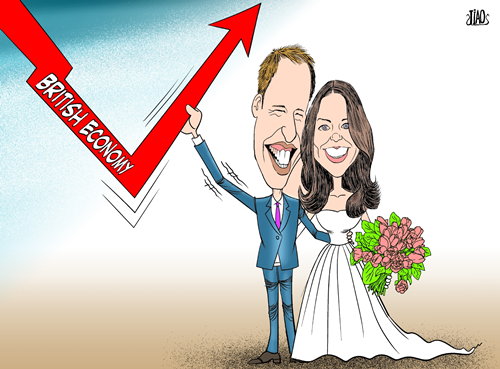What is behind the Royal wedding?
|
|
|
[By Jiao Haiyang/China.org.cn] |
There is nothing like a Royal occasion in Britain to bring out the underlying character of its society and state. A vast army of television crews and photographers are swarming around the epicentre of joy, Westminster Abbey. Days in advance, people desperate to be part of this historic event arrived in tents at the scene, waving Union Jacks (made in China) and wearing a certain glazed look — the look of the happy servility of village idiots.
The awry-eyed subservience that is so keenly generated by "so touching" an event as the marriage of Will and Kate, conceals behind it societal power relations. When Prime Minister David Cameron heard news of the marriage, he and his cabinet burst into applause and thumped their fists on the table. Cameron and the other MPs hope the event will distract from the social chasm that opens up, as austerity is imposed on the working class to pay for the financial crisis.
| Don't miss |
Constitutionally, Britain remains a nation stuck in time. It retains an ossified compromise between the bourgeois and feudal powers. When King Charles 1st was beheaded in Whitehall during the English revolution in 1649, the power of the rising bourgeois class was not deeply enough engrained to sustain republican rule. Thus the monarchy was restored in 1660 following the death of Oliver Cromwell, even though many of the foundations of capitalist rule were entrenched.
This bourgeois-feudal compromise remains incarnated in rituals and laws from medieval times. These serve to sanctify a social order based on unearned wealth, privilege and power. The British aristocracy owned nearly half the nation's land and derived obscene wealth from its feudal titles.
 0
0 







